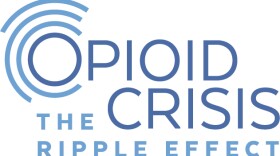Wendyl Jones recalls an old James Brown song that delivers an apt warning about heroin.
“He said it would 'drive you to hell,' and that's exactly what it will do. I've lost multiple friends over the last couple of years due to this."
A tear runs down Jones’ cheek as he describes his trip to hell.
The 42-year-old’s heroin addiction began about seven years ago when he started taking Percocet, an opioid pain medication, after he injured his neck and back in a car accident.
He became hooked on the drug, and like a lot of victims of the opioid crisis, realized that heroin was cheaper. Jones knew a Rochester street dealer he thought he could trust. Last August, he bought a dose of what he assumed was heroin.
"And they gave me fentanyl, which I had no idea that's what it was at the time."
Fentanyl is a powerful, synthetic opioid similar to heroin, but 50 times more potent. Soon after Jones had that drug in his system, he lost consciousness.
"And I was in the driveway, and my mother was trying to administer CPR to me,” Jones said, choking back tears. “From the story that I was told, there was various members of the community praying and hoping that uh ... that I would be revived. According to the ambulance, the individuals that was there shot me with Narcan. I did not respond. It was a flat line. They ultimately done it again. I sincerely believe through prayer and love being displayed at that time is how I came through."
Jones believes his family's prayers were answered, but many fentanyl users weren’t as fortunate.
The drug was a factor in 88 percent of the 115 fatal overdoses reported by the Monroe County Medical Examiner's Office in the first six months of 2017.
Monroe County Sheriff Todd Baxter says fentanyl is still prevalent on the streets.
"We're seeing bags right now that we thought were heroin. We'll test the bags as a field test on the street and there won't be a lick of heroin in 'em. They're all fentanyl, they're all other drugs.”

Understanding the scope and scale of the heroin and opioid epidemic in greater Rochester has been a challenge. Toxicologists at the Monroe County Medical Examiner's Office have been overwhelmed by the number of cases they're handling, so funding was added to hire two additional toxicologists who soon will be on the job.
It routinely takes months and months to get data on the number of overdose deaths, making it difficult for law enforcement and other agencies to respond to the crisis.
Early this year, police agencies started collecting their own data from paramedics and hospital emergency departments. Sheriff Baxter says this could save lives.
"We might have some very bad dope out there, you know, at a hot spot or in certain baggies, and now in the next morning, we can set our enforcement officers right on that problem before it kills someone."
In the first two months of this year, there were 176 overdoses in Monroe County. Thirty of them were fatal.
"If we looked across any other spectrum and it was a flood that caused this many deaths or an active shooter, there would be the National Guard here and there would be command posts set up; there would be a whole different response,” Baxter said. “The number of deaths has been utterly incredible and we're still trying to wake up the whole population about how dangerous this is and how close this is to each one of us.”
And it’s not just an urban problem. Most of the deaths do happen in the city, but so far this year, overdose victims have died in Greece, Henrietta, Honeoye Falls, Webster, Penfield, Pittsford, and six other suburbs.
Heroin addiction can happen to people who are privileged or poor, black or white, young or old. It's even happened in Lt. Gov. Kathy Hochul's family.
"I am sick and tired of opening the Sunday paper and seeing the obituaries of people, not in their 90s, but in their 20s and 30s,” Hochul said last month. “My nephew was one of them a couple of years ago."
Wendyl Jones knows he was lucky to avoid the same fate. He said the community needs to wake up and understand the gravity of the addiction epidemic.
"This is not a game. This is no laughing matter. It is destroying the lives of our youth and we need to come together collectively and do something about it. Not just talking about it, but coming up with solutions and applying those solutions to make a difference."
This story is part of a WXXI News series on the ripple effects of the opioid epidemic. The project is a collaboration with ideastream in Cleveland and Oregon Public Broadcasting.
Click on the LISTEN link above to hear this feature.






